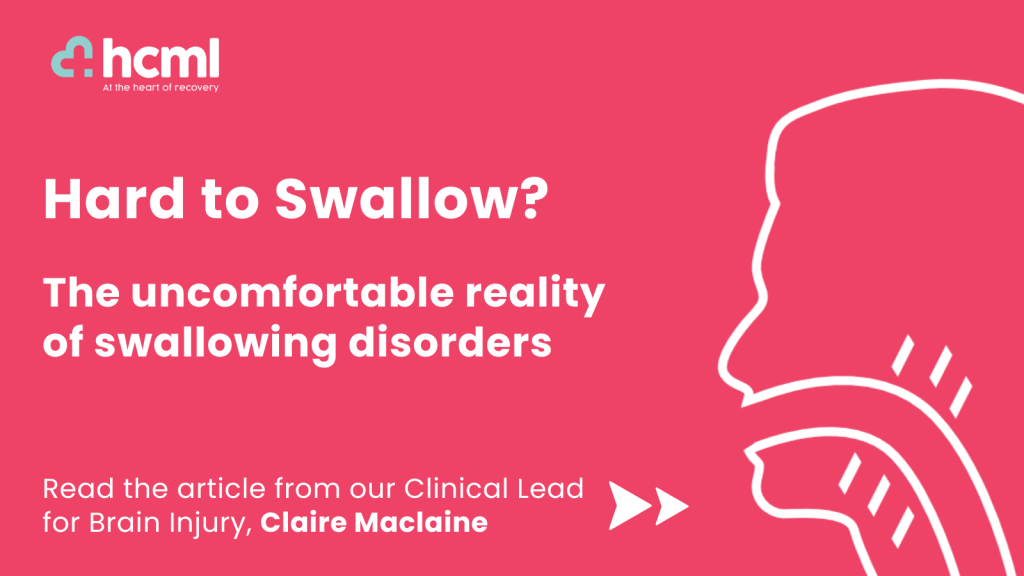
Hard to Swallow? The uncomfortable reality of swallowing disorders
A common condition after brain injury is dysphagia – difficulty swallowing and chewing. In her latest blog, our Clinical Lead for Brain Injury and Speech & Language Therapist Claire MacLaine looks into the effects of dysphagia and how the condition can be managed.
Salt is an essential nutrient which seasons food to bring out the flavour, and Speech and Language Therapists (SaLTs) aim to do the same for people who have a swallowing disorder, medically known as dysphagia.
People with dysphagia may have problems swallowing types of foods or liquids, and others are unable to swallow at all. In some cases, saliva, food, fluid, or medications can end up going through the larynx (voice box) and passing into the lungs. This can cause a range of symptoms from pain and discomfort to recurrent cases of pneumonia.
Dysphagia can be caused by many various medical conditions:
- congenital, traumatic, and progressive neurological disorders
- head, neck, and oesophageal trauma and cancers
- respiratory disorders
- immune disorders
- drug and alcohol dependency
- old age
- and many other conditions.
SaLTs work with people with communication disorders, and are also the clinical specialists responsible for assessing, advising, and managing dysphagia. They have extensive knowledge and clinical training in brain, head and neck anatomy and physiology. They assess people’s ability to chew and swallow effectively.
Some people with dysphagia can no longer eat or drink any food or fluid and therefore receive nutrition and hydration through a tube. Other people with dysphagia are recommended a modified diet which may be pureed or mashed food, and drinks thickened with powder to become like a smoothie, making it easier to swallow.
This prevents people choking on food, or fluid going into their lungs and causing a chest infection. Unless a person has had a sudden event such as a stroke or a brain injury, symptoms of dysphagia may come on slowly. There are many signs of dysphagia. The main ones are:
- reports of difficulty chewing and swallowing certain foods/fluids/medications
- pain or anxiety when eating/drinking
- choking or coughing when swallowing
- taking a long time to eat/drink and leaving food/drink
- repeated chest infections
- unintended weight loss
- skin looking grey and clammy.
People who have difficulties with the movements and strength of their mouth muscles, poor teeth and oral hygiene, and who have a weak voice and weak cough, are more likely to experience dysphagia. People with cognitive issues, such as dementia, are also at higher risk of dysphagia and its associated health conditions. Left unmanaged, dysphagia can lead to malnutrition and dehydration, serious long-term ill-health, and possibly death.
It is rare, but possible, that a person has dysphagia as their only symptom; however, dysphagia is usually one presentation amongst other medical conditions. SaLTs therefore work alongside occupational therapists, physiotherapists, dietitians, pharmacists, and certain medical specialists, to support the person’s safety and independence when eating and drinking.
The loss of the ability to eat and drink can be socially isolating and psychologically catastrophic, therefore SaLTs aim to support a person with dysphagia to manage some oral intake, when safe to do so. There is often no reversal in dysphagia and it is usually a permanent condition, which worsens over time, but despite the limitations the person’s medical condition impinges upon them, SaLTs can add some flavour into a person’s diet and keep some seasoning in their life.











